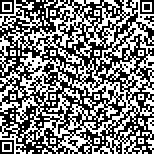| 引用本文: |
胡锦洋,王璇,蒋士生.芪连结肠宁对溃疡性结肠炎模型大鼠结肠组织中NF-κB相关通路蛋白及血清炎症因子的影响[J].湖南中医药大学学报,2022,42(6):878-884[点击复制] |
|
| |
|
|
| 本文已被:浏览 3278次 下载 1381次 |
| 芪连结肠宁对溃疡性结肠炎模型大鼠结肠组织中NF-κB相关通路蛋白及血清炎症因子的影响 |
| 胡锦洋,王璇,蒋士生 |
| (湖南中医药研究院附属医院, 湖南 长沙 410006;湖南中医药大学第二附属医院, 湖南 长沙 410000)) |
| 摘要: |
| 目的 研究芪连结肠宁对溃疡性结肠炎(ulcerative colitis,UC)模型大鼠结肠组织中NF-κB相关通路蛋白及血清炎症因子的影响。方法 选取36只大鼠采用3%葡聚糖硫酸钠喂养建立UC模型,并随机分为模型组、水杨酸柳氮磺胺吡啶(salicylazosulfapyridine,SASP)组、芪连结肠宁组,每组12只。另取12只大鼠为空白组。造模后,SASP组予SASP药液0.27 g/kg,芪连结肠宁组予芪连结肠宁药液3.5 g/kg,空白组和模型组予生理盐水,每天灌胃给药1次,连续28 d。观察治疗前后大鼠体质量、大便性状、便血情况,并计算疾病活动指数(disease activity index,DAI)。治疗后,HE染色法观察各组大鼠结肠组织病理变化情况;ELISA法检测各组大鼠血清中白细胞介素-1β(interleukin-1β,IL-1β)、白细胞介素-2(interleukin-2,IL-2)、白细胞介素-6(interleukin-6,IL-6)、白细胞介素-8(interleukin-8,IL-8)、肿瘤坏死因子-α(tumor necrosis factor-α,TNF-α)含量;Western blot检测各组大鼠结肠组织中Toll样受体-4(Toll like receptor-4,TLR-4)、核转录因子-κB(nuclear factor-κB,NF-κB)、髓样分化因子88(myeloid differentiation factor 88,MyD88)蛋白表达情况。结果 治疗第14、21、28天,SASP组、芪连结肠宁组体质量及DAI评分均明显低于模型组(P<0.05,P<0.01);芪宁结肠宁组体质量均明显高于SASP组(P<0.05,P<0.01)。模型组结肠组织明显有黏膜损伤;SASP组、芪连结肠宁组结肠组织病理损伤均不同程度恢复,炎性浸润减轻。与空白组比较,模型组IL-1β、IL-6、IL-8、TNF-α含量及TLR-4、NF-κB、MyD88蛋白表达明显升高(P<0.01),IL-2含量明显降低(P<0.01)。与模型组比较,SASP组、芪连结肠宁组IL-1β、IL-6、IL-8、TNF-α含量及TLR-4、NF-κB、MyD88蛋白表达明显降低(P<0.01),IL-2含量明显升高(P<0.01)。与SASP组比较,芪连结肠宁组TLR-4、MyD88蛋白表达明显升高(P<0.01),NF-κB蛋白表达明显降低(P<0.01)。结论 芪连结肠宁可能是通过抑制TLR-4蛋白活性,减少其下游的NF-κB的活化,进而调控促炎和抗炎因子的平衡,减少肠道炎症反应,从而发挥对UC的治疗作用。 |
| 关键词: 溃疡性结肠炎 芪连结肠宁 炎症因子 Toll样受体-4 髓样分化因子88 核转录因子-κB |
| DOI:10.3969/j.issn.1674-070X.2022.06.002 |
| 投稿时间:2021-11-16 |
| 基金项目:湖南省中医药科研计划青年课题(2021177);湖南省中医药研究院联合基金重点项目(202118);全国名老中医药专家蒋士生传承工作室建设项目(国中医药人教函[2013]47)。 |
|
| Effect of Qilian Jiechangning Decoction on NF-κB related pathway proteins in colon tissue and serum inflammatory factors in UC model rats |
| HU Jinyang,WANG Xuan,JIANG Shisheng |
| (Affiliated Hospital of Hunan Academy of Traditional Chinese Medicine, Changsha, Hunan 410006, China;The Second Affiliated Hospital of Hunan University of Chinese Medicine, Changsha, Hunan 410000, China) |
| Abstract: |
| Objective To investigate the Qilian Jiechangning Decoction on NF-κB related pathway proteins in colon tissue and serum inflammatory factors in ulcerative colitis (UC) model rats.Methods A total of 36 rats were selected and fed with 3% sodium dextran sulfate to establish UC model, and randomly divided into model group, salicylazosulfapyridine (SASP) group, Qilian Jiechangning group, with 12 rats in each group. Another 12 rats were selected as blank group. After modeling, SASP group was given SASP solution 0.27 g/kg, Qilian Jiechangning group was given Qilian Jiechangning group solution 3.5 g/kg, blank group and model group were given normal saline once a day, for consecutive 28 d. The body weight, stool characteristics and hematochezia of rats were observed before and after treatment, and the disease activity index (DAI) was calculated. After treatment, HE staining was used to observe the pathological changes of colon tissues in each group. The serum levels of interleukin-1β (IL-1β), interleukin-2 (IL-2), interleukin-6 (IL-6), interleukin-8 (IL-8) and tumor necrosis factor-α (TNF-α) in rats were detected by ELISA. Western blot was used to detect the expression of toll-like receptor-4 (TLR-4), nuclear factor-κB (NF-κB) and myeloid differentiation factor 88 (MyD88) in colon tissues of rats in each group. Results On the 14th, 21st and 28th days of treatment, the body weight and DAI score of the SASP group and the Qilian Jiechangning group were significantly decreased than those of the model group (P<0.05, P<0.01); the body weight of Qilian Jiechangning group was significantly increased than the SASP group (P<0.05, P<0.01). The colon tissue of the model group had obvious mucosal damage; the pathological damage of the colon tissue in the SASP group and Qilian Jiechangning group recovered to varying degrees, and the inflammatory infiltration was reduced. Compared with blank group, the levels of IL-1β, IL-6, IL-8, and TNF-α and protein expression of TLR-4, NF-κB and MyD88 in model group were significantly increased (P<0.01), and the level of IL-2 significantly decreased (P<0.01). Compared with model group, the levels of IL-1β, IL-6, IL-8, and TNF-α and protein expression of TLR-4, NF-κB and MyD88 in SASP group and Qilian Jiechangning group were significantly reduced (P<0.01), and the IL-2 content was significantly increased (P<0.01). Compared with SASP group, the expression of TLR-4 and MyD88 protein of Qilian Jiechangning group increased significantly (P<0.01), the expression of NF-κB protein was significantly reduced (P<0.01). Conclusion Qilian Jiechangning Decoction may inhibit the activity of TLR-4 protein and reduce the activation of the downstream NF-κB, thereby regulating the balance of pro-inflammatory and anti-inflammatory factors, reducing intestinal inflammation, thereby treating UC. |
| Key words: ulcerative colitis Qilian Jiechangning Decoction inflammatory factor Toll like receptor-4 myeloid differentiation factor 88 nuclear factor-κB |
|

二维码(扫一下试试看!) |
|
|
|
|




